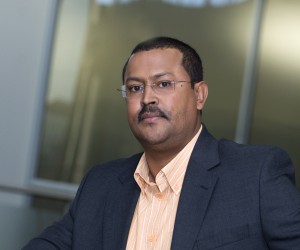For the last century and a half, mining has been central to South Africa’s socio-economic development and objectives. While mining is still a significant driver in the country’s economy, South Africa increasingly needs to look at other ways of stimulating the economy and creating much needed jobs.
Minerals minister, Mosebenzi Zwane, speaking at the 2017 Mining Indaba, Africa’s largest mining investment conference, emphasised this view, saying the way to ensure SA’s mineral wealth is robust and benefits all, is through prioritising beneficiation.
With this national imperative in mind, the Industrial Development Corporation (IDC) in the North West province is also looking at ways of diversifying its investment portfolio and focusing more on sectors outside of mining.
According to the IDC’s North West regional manager, David McGluwa, mining still remains the key driver of economic growth and job creation in the province. It is still one of the biggest contributors to the provincial economy and accounts for more than a third of the provincial GDP, with a quarter of the provincial workforce in it. However, there are many other sectors in the North West province that provides investment opportunities, such as agro-processing, tourism, manufacturing and the green economy.
McGluwa reckons tourism is the next “mining” for the province, but IDC will continue investing into other sectors like manufacturing, agro-processing, solar energy as well as waste processing.
In mining however, McGluwa says that the IDC’s current focus is on the entire value chain, supporting beneficiation and transformation. The IDC believes that it if they are to increase jobs and create a lasting legacy, their partners in the mining industry need to aggressively pursue sustainable change and beneficiation aspect, especially during tough times.
“It is no longer enough to merely dig up the minerals and ship them off to other places around the country and the world. Mining companies need to look at how they can derive more value out of what they’re mining by proactively developing new or different markets for their products. Some mining houses are now involved in fuel cells technology, which wasn’t the case in the past. This is the right way to go as it’ll also ensure that they are part of the decisions of where their products go to or what they do. To us as the IDC, that is the direction we see mining in the province taking going into the future,” says McGluwa.
McGluwa says in 2008 when the IDC started operating in the province, they had R1.4 billion invested in various sectors within the North West Province and that figure has since grown to R6.3 billion, creating 21 455 direct jobs to date. “About R5.8 billion (92%), of our book in the province, is in the mining and beneficiation sector. So we are looking at expanding and developing other industries around mining. The tourism sector is one such key sector and we are looking at tourism related initiatives to help bolster the economy, together with the mining industry, which will still play a central role,” says McGluwa.
The IDC supports mining businesses that find fresh ways of enhancing their operations and making them sustainable. Getting this right ensures that all the stakeholders gain, as the company stays profitable, jobs are secured with more possibly getting created. Within its existing projects in the mining sector, the IDC encourages its partners to find new and innovative ways of doing business in an effort to stay not only profitable, but also relevant.
Sedibelo Platinum is a prime example of this direction. Through its operating company, Pilanesberg Platinum Mines (PPM), this junior Platinum Group Metals (PGM) Mine is investing in new technologies while empowering locals. Sedibelo’s open cast mining operation employs about 2 000 people, and more than 40% of the workforce is derived from the Bakgatla tribe.
In 2012, the IDC invested R3.24 billion in the venture and the operation has been investing in smart technology that could change platinum mining forever. The company has invested in KELL, an alternative technology to smelting as a way of extracting metals and minerals from mined ore.
According to Sedibelo CEO, Erich Clarke, KELL uses 20% of the electricity that a typical smelter would use and they are aiming to build a KELL plant next to their concentrator so they can stop relying on the large smelters to process their concentrate to metals. “The cost of a KELL plant is also substantially less than a smelter for similar volumes and it’s scalable,” says Clarke.
Considering South Africa’s recent electricity challenges, moving away from energy exhausting large smelters to new technologies such as KELL is a step in the right direction as it could also save mines and similar businesses millions in energy costs, thus helping to preserve much-needed jobs.






